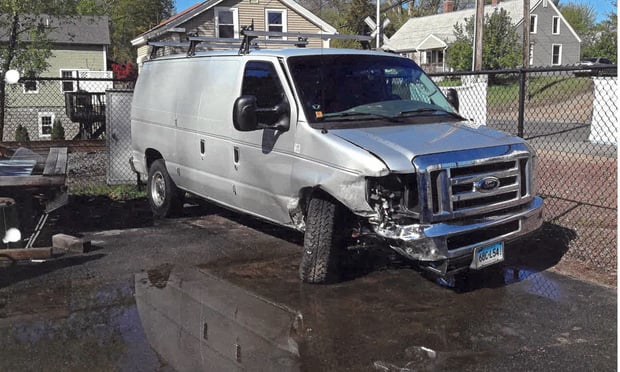New Asbestos Bill Moves Through Senate With opposition mounting, analysts say final passage prospects are dim
Washington Bureau Chief
Bipartisan legislation creating an alternative claims handling system for those injured by exposure to asbestos in the workplace was introduced in the Senate last week and could pass the Senate Judiciary Committee soon.
However, given strong opposition by insurance and defendant companies, as well as conservatives in both Houses of Congress, its prognosis for ultimate passage in this Congress remains quite guarded, analysts said emphatically.
Judiciary Committee leadership Sens. Arlen Specter, R-Pa., chairman of the committee, and Patrick Leahy, D-Vt., ranking minority member, vowed at a news conference last week to get the bill through the committee within two weeks and onto the Senate floor equally as quickly.
“I believe we'll get it passed out of committee. I believe we'll get it passed in the Senate, and we'll do it with a very comfortable margin,” Sen. Leahy said.
All insurance carrier trade groups criticized the bill in varying degrees, large defendant companies are also opposed, and Equitas, the runoff company created by Lloyds of London to handle pre-1993 asbestos and environmental claims, said one provision discriminates against it.
Credit Suisse First Boston and Washington Analysis, among other investment brokerages, said they were pessimistic the bill will ultimately pass this Congress.
Joe Lieber of Washington Analysis said in a note to investors, Investor enthusiasm over [Sen.] Specters introduction of his bipartisan asbestos litigation reform legislation late Tuesday should, in our opinion, be tempered.
“While progress has been made on this bill, we still believe it faces an uphill battle on the Senate floor and that the odds of its becoming law remain below 50 percent,” he wrote.
In his note, Mr. Lieber said that it appears Sen. Specter has the votes to get the bill through committee. However, he added Sen. Specter may be looking at a Pyrrhic victory since it looks like only five of the 10 Republicans on the Judiciary Committee will support the legislation, while a majority of the committees nine Democrats will support it.
Getting a bill with equal or more Democratic support [than] GOP support through the full Senate will be difficult, Mr. Lieber noted. Although everyone is focused on the Senate, we point out that the bill is likely to face major hurdles in the House as well.
For their part, one coalition of insurance carrier trade groups said diplomatically that the bill does not adequately address all of our concerns.
Specifically, the letter, signed by officials of the American Insurance Association, the Reinsurance Association of America and the National Association of Mutual Insurance Companies, explained that it is imperative that any trust fund provide insurers with both certainty and finality for our asbestos exposure.
A letter sent by another coalition of trade groups was harsher. The costs of this legislation to the industry are potentially devastating and are unacceptable to our members, said Carl Parks, senior vice president for government affairs at the Property Casualty Insurers Association of America. Unless substantial changes are made, we will strongly oppose it, he said.
Another provision under fire from the insurance industry in the new bill is its no subrogation provision, which means that insurers and defendants paying a claim to a worker injured by exposure to asbestos cannot include a lien against workers' compensation payments already made to the claimant.
Organized labor supports the no-lien provision but also has its problems with the bill. AFL-CIO president John Sweeney voiced support for some changes in the bill from earlier drafts, such as an increase in award levels for some disease categories and a bar against any liens on workers compensation awards. But the bill leaves a number of serious deficiencies that must be corrected, he said. These include the elimination of compensation for a large group of lung cancer victimsa provision strongly supported by the insurance industryand the absence of remedies for victims during the startup period before the fund is able to pay claims.
Equitas dislikes the bill because it continues to include a provision denying Equitas a safe harbor on liabilities available to everyone else. The provision says that all insurers and reinsurers except Equitas would be given the right to either reduce or defer the payment if they can demonstrate that it was unfair or that it would force them into bankruptcy.
Flag: Opposition Mounts
Groups opposing the latest asbestos bill introduced in the Senate include:
American Insurance Association
Reinsurance Association of America
National Association of Mutual Insurance Companies
Property Casualty Insurers Association of America
Equitas
AFL-CIO (in part)
Reproduced from National Underwriter Edition, April 15, 2005. Copyright 2005 by The National Underwriter Company in the serial publication. All rights reserved.Copyright in this article as an independent work may be held by the author.
Want to continue reading?
Become a Free PropertyCasualty360 Digital Reader
Your access to unlimited PropertyCasualty360 content isn’t changing.
Once you are an ALM digital member, you’ll receive:
- Breaking insurance news and analysis, on-site and via our newsletters and custom alerts
- Weekly Insurance Speak podcast featuring exclusive interviews with industry leaders
- Educational webcasts, white papers, and ebooks from industry thought leaders
- Critical converage of the employee benefits and financial advisory markets on our other ALM sites, BenefitsPRO and ThinkAdvisor
Already have an account? Sign In Now
© 2024 ALM Global, LLC, All Rights Reserved. Request academic re-use from www.copyright.com. All other uses, submit a request to [email protected]. For more information visit Asset & Logo Licensing.








